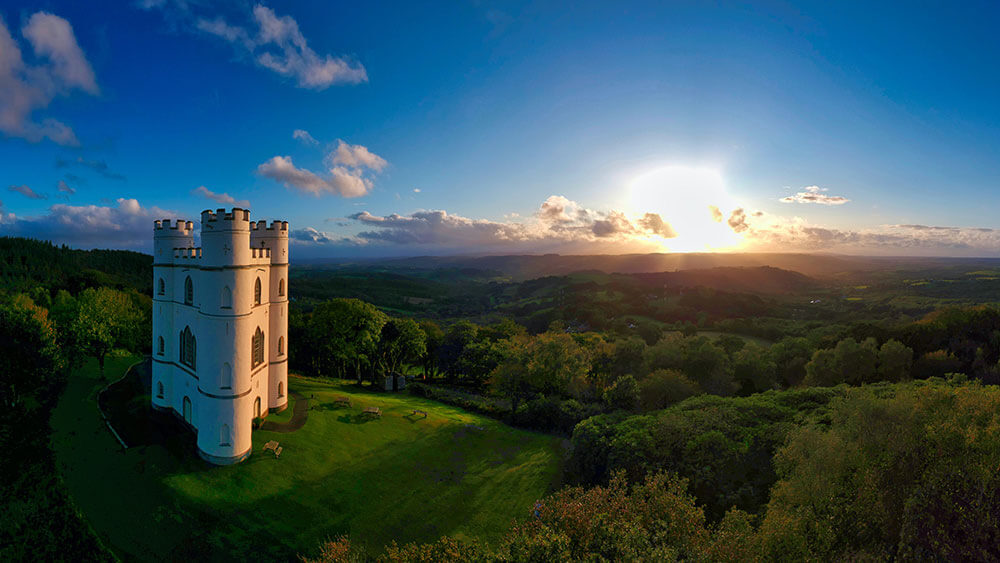
Like many attractions in the United Kingdom, the Haldon Belvedere, or Lawrence Castle, in Devon currently is closed. Destination professionals expressed optimism for tourism and other industries during VisitBritain’s first virtual MeetGB exhibition. (Red Zeppelin on Unsplash)
Despite the economic fallout from COVID-19, many destination leaders feel hopeful about the future of travel and tourism. In an industry roundtable hosted by VisitBritain before its first virtual MeetGB exhibition on June 17, representatives from England, Wales, London, Scotland, and Northern Ireland discussed the ways in which they believe the United Kingdom will come out stronger during and on the other side of the health crisis.
In the discussion moderated by Simon Hughes, chair of the U.K.’s Business Visits and Events Partnership, Kerrin MacPhie, head of business events for VisitBritain/VisitEngland, said that remaining top-of mind for buyers and event organizers is key to keeping business strong in her destination. “Staying relevant, being in the moment… . It’s a people’s industry, and we want to be front-of-mind,” she said.
Eimear Callaghan, business solutions manager for Tourism Northern Ireland, also emphasized the power of relationships and communication during this time of widely remaining physically apart.
“We’ll come out stronger by just doing the right thing,” Callaghan said. “By working with event organizers, by working with our buyers, and helping them manage this change and making their events work for what the new world looks like. Relationships will be made and really enhanced during this period where destinations and buyers can work together. I think the key is collaboration — it’s sharing best practices, it’s sharing what was great, what really worked, but more importantly sharing what was disastrous, so we do not make the same mistakes.”
Tracy Halliwell, director of tourism, conventions, and major events for London & Partners, said that from a practical point of view, an important way for venues to function again in a world without a COVID-19 vaccine is to invest in resources that will help guests and employees feel safe, such as thermal imaging technology and better sanitation practices.
“It can only add to the offer we [put out] into the world,” Halliwell said. “I think we’ll all come out of this realizing that things can change overnight… . We will lose some things — of course we will. But I think we’ll build it again, and we’ll build it much better and stronger.”
Added Neil Brownlee, head of business events at VisitScotland, “This has reminded us who our key players are,” he said, pointing out that many destination leaders have likely never spoken as frequently with individuals both within their organization and at venues in their destination as they have in the last few months.
“I think this whole experience, the pandemic, has been awful, but it has fast-forwarded a lot of things the industry was going to have to do anyway,” Brownlee said. “Whether it was the way hotels work, venues work, trade shows — all of these things were going to have to be confronted in the next four or five years, but I think we all thought, ‘We’ll do it at [a] pace, thank you very much.’ That has all been fast-forwarded by at least three years [as people are] investing in tech.”
